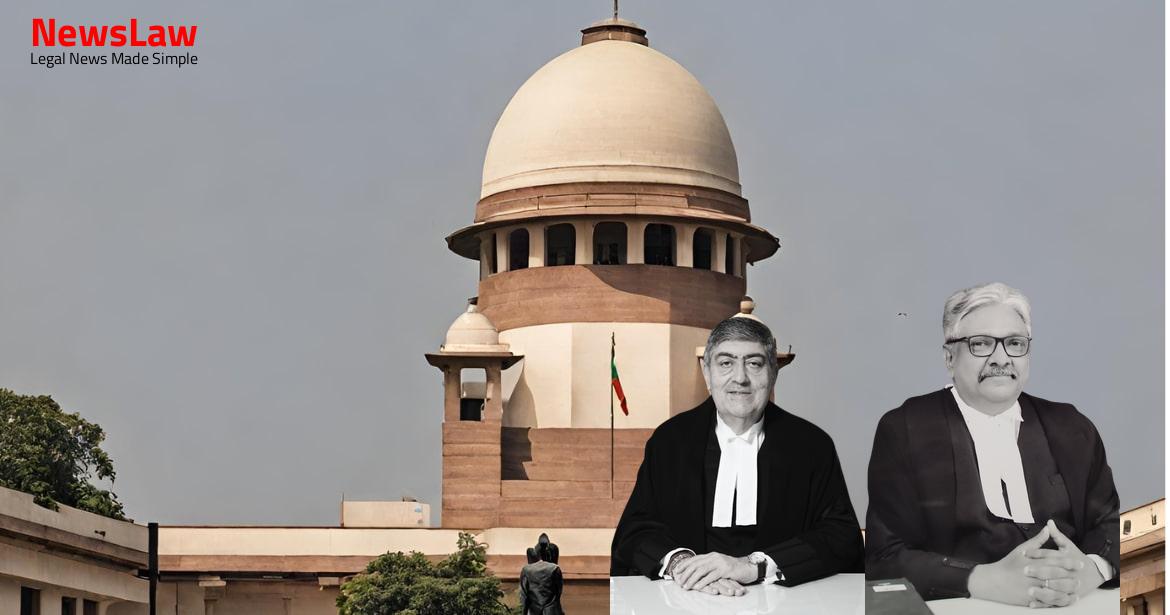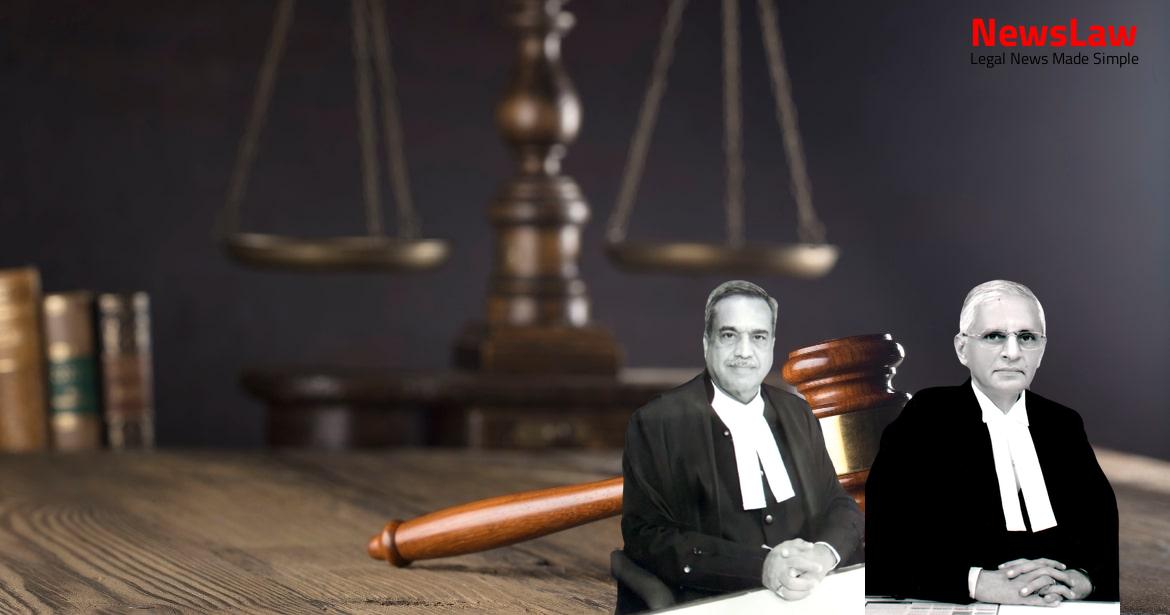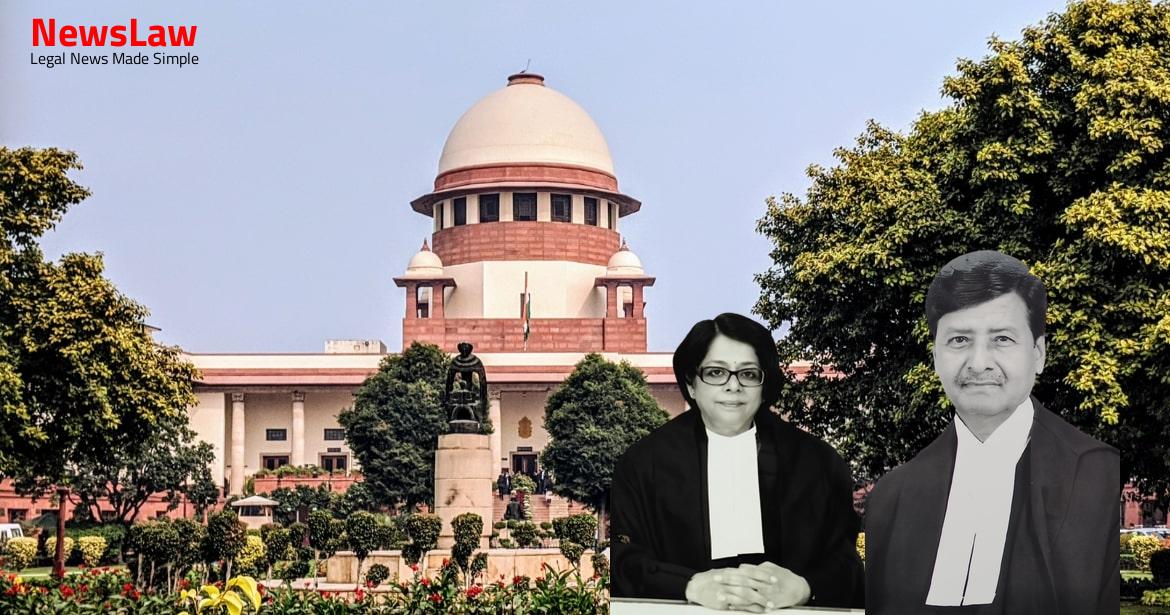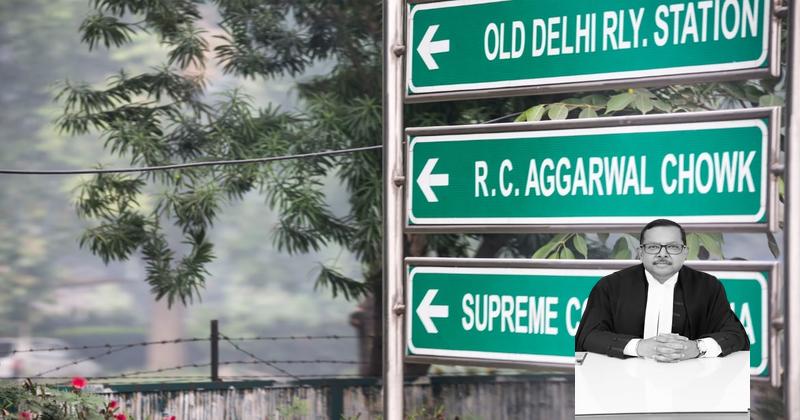In a significant ruling by the Supreme Court of India, a landmark judgement was passed regarding allegations of dowry death. The case involved intricate legal considerations and detailed examination of the facts presented by the parties involved. The judgement has far-reaching implications in the realm of criminal law and justice system in the country.
Facts
- The appellant did not accept the demand for dowry and made a demand of Rs. 4 lakhs at the time of marriage.
- Multiple family members of the second respondent’s daughter were accused of demanding dowry and killing her.
- Various complaints and protest petitions were filed in relation to the case.
- Investigations were conducted, final reports were filed under relevant sections of the Cr.P.C., and opinions were given on the nature of the controversy.
- Court proceedings involved consideration of protest petitions and final reports.
- The Chief Judicial Magistrate’s orders were scrutinized and directions were given for reevaluation of protest petitions.
- The matter evolved through multiple legal stages including revision petitions, appeals, High Court orders, and writ petitions.
- Allegations included demands for dowry, coercion leading to the daughter’s death, and subsequent investigations upon her disappearance.
- Chief Judicial Magistrate concluded that the daughter of the complainant died due to illness and not due to harassment or torture by the accused.
- Accused persons were found not guilty of causing harassment, torture, or dowry death.
- High Court interfered with the orders of the Magistrate and Additional Sessions Judge.
- Additional Sessions Judge dismissed the criminal application for lack of merit.
- High Court allowed the Magistrate to take suitable action if he does not accept the report.
- Accused’s plea to reject the summons issued to them was turned down by the High Court.
Also Read: Interpretation of Proviso in Rule 266(3): Legal Analysis in the Case of Teacher Recruitment
Arguments
- The question arose if a report stating no material for sending the accused for trial allows the Magistrate to direct the police to submit a charge-sheet.
- The High Court accepted the report but directed reconsideration, leading to the need for the complainant to implead the appellant and other relatives.
- The second respondent highlighted discrepancies in the death certificate and witness statements suggesting a basis for treating the protest petition as a complaint.
- The Additional Sessions Judge found no prima facie case under Section 304B and 201 of the IPC but no reference to Section 498A in the Chief Judicial Magistrate’s order.
- The second respondent did not push the case under Section 498A, confining the contention to Section 304B and 201 of the IPC.
Also Read: Landmark Judgment: The Kerosene Incident Case
Analysis
- In cases where the Magistrate decides not to take cognizance of the offence or to drop the proceeding, notice to the informant and an opportunity to be heard becomes mandatory.
- A Writ of Certiorari will not lie to quash an order of a civil court.
- Even after accepting a final report filed by the police, the Magistrate can disagree with the police’s conclusion and take cognizance of the offence under Section 190 of the Code.
- If a complaint is dismissed without assigning reasons, the Magistrate can take cognizance of an offence and issue process if sufficient grounds exist.
- A protest petition is in the nature of a complaint and should be examined as such.
- There is no statutory bar in filing a second complaint on the same facts.
- The informant should be given an opportunity to be heard when the Magistrate decides not to take cognizance based on the police report.
- The informant is not prejudiced when the Magistrate decides to proceed with the case after taking cognizance.
- Final form acceptance does not debar the Magistrate from taking cognizance based on materials produced in a complaint proceeding.
- The Magistrate has the option to accept a police report and take cognizance of the offence or disagree with it and drop the proceeding
- The Magistrate can also direct further investigation by the police
- If the police report states that no offence appears to have been committed, the Magistrate can either accept it and drop the proceeding or disagree and proceed further
- In cases where the Magistrate orders an investigation under Section 156(3) upon receipt of a complaint, he can take various actions based on the subsequent police report
- The Magistrate has the discretion to dismiss the complaint or issue process based on the investigation report
- The Magistrate is not bound to follow specific procedures under Sections 200 and 202 if he decides to take cognizance based on the police report
- A police report disclosing a non-cognizable offence is deemed as a complaint
- The Magistrate can independently apply his mind to the investigation facts and decide whether to issue process to the accused
- In cases where there is sufficient ground to proceed based on police findings, the Magistrate may issue process without being bound by the investigating agency’s conclusion
- The Court discussed that the Magistrate has the authority to take cognizance of an offence even if the police report concludes no case against the accused.
- The Magistrate can base his decision on statements of witnesses collected during investigation and material present in the case diary.
- Acceptance of a final report does not prevent the Magistrate from considering a protest petition or complaint and taking cognizance on those grounds.
- The Court highlighted the importance of the Magistrate independently applying his mind to the facts presented, including protest petitions and affidavits.
- In cases where a protest petition does not meet the requirements of a complaint, the Magistrate may not treat it as such and the complainant may need to file a new complaint.
- The High Court’s interference with Magistrate’s orders should be cautious due to the limited nature of its jurisdiction.
- The responsibility of the Magistrate includes a thorough examination of materials, hearing the complainant, and making a well-considered decision on further action.
- The Magistrate is not restricted to follow the procedure under Sections 200 and 202 of the Code if he chooses to take cognizance independently.
- The High Court’s order is set aside due to errors in intervention and lack of justification in the facts of the case.
- The appeal is allowed, and the impugned order of the High Court is set aside.
- The second respondent still has the right to file a complaint as stated in the order of the Additional Sessions Judge.
- The premise for setting aside the order has no basis even for the other accused who are relatives of the appellant.
Also Read: Judgment on Inconsistencies in Eyewitness Testimonies: Resham Singh v. State of India
Decision
- The judge has the authority to take cognizance of an offence
- If the judge deems there is sufficient grounds, he can issue process under Section 204
- If the judge finds no sufficient ground, he may dismiss the complaint under Section 203
Case Title: VISHNU KUMAR TIWARI Vs. THE STATE OF UTTAR PRADESH
Case Number: Crl.A. No.-001015-001015 / 2019



